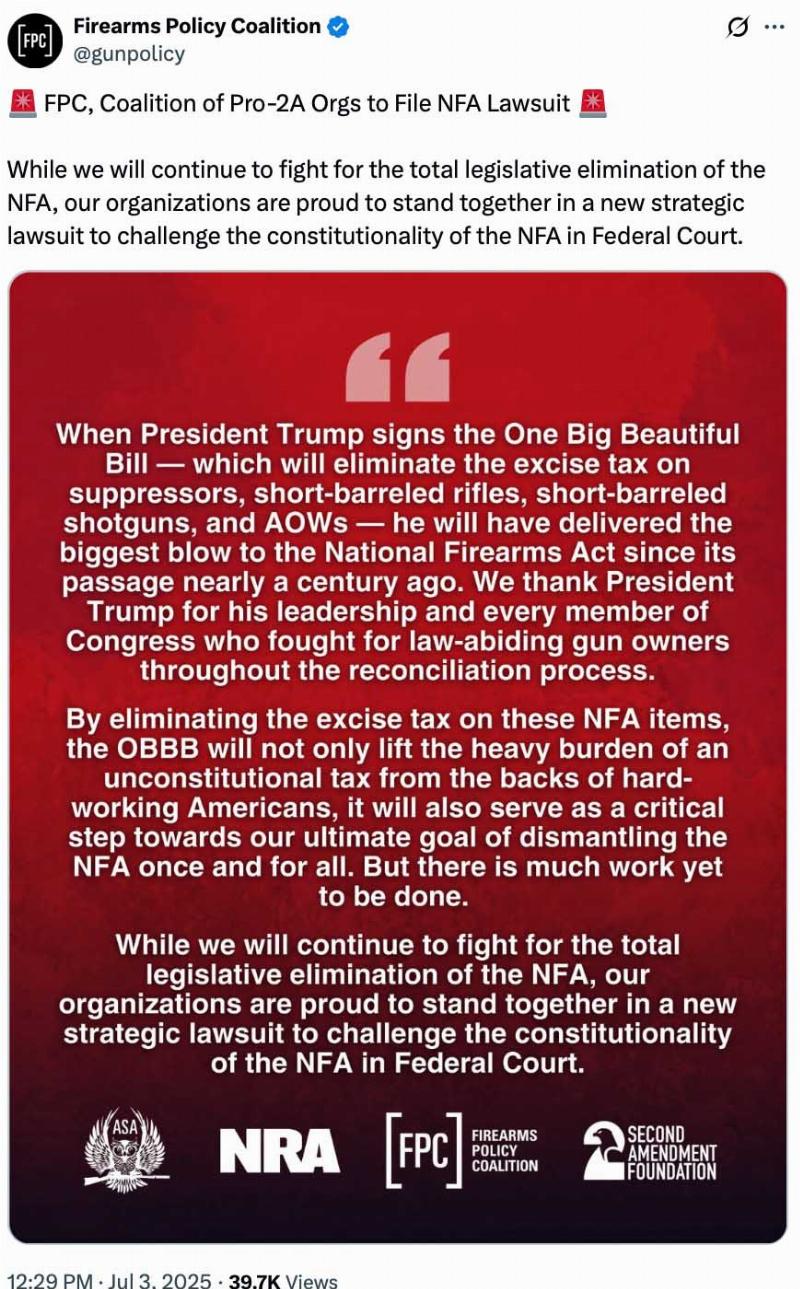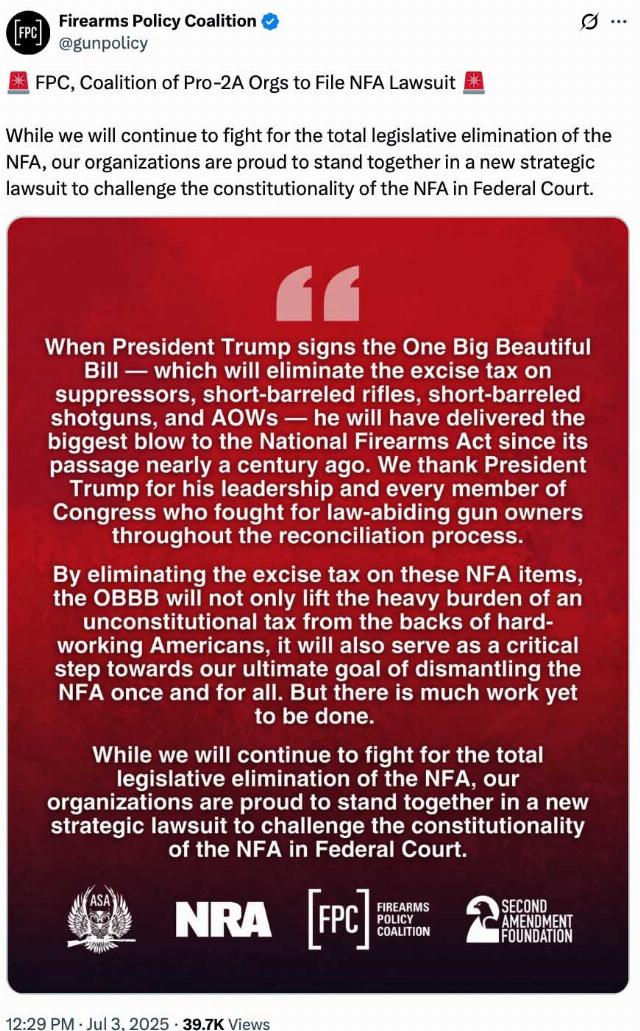


Among the provisions of the Big Beautiful Bill President Trump symbolically signed on July 4 is removal of taxes on suppressors, short-barreled rifles, short-barreled shotguns and AOW—Any Other Weapon. Because it’s a reconciliation bill, the provisions of the 1934 National Firearms Act that require regulation of such items, including onerous registration, background checks, fingerprinting and other regulations could not likewise be ended.
Currently, automatic weapons are essentially banned, rifles and shotguns must have overall lengths of at least 26”. Rifle barrels must be at least 16” long, and shotgun barrels must be at least 18” long. Why not 15” or 17”? Good question. These measures were enacted during Prohibition ostensibly to control crime, but criminals always ignore the law. The overall effect has been to inconvenience, harass and sometimes prosecute the law abiding.
Short-barreled shotguns and rifles certainly reduce long-range accuracy and effectiveness and produce louder report and greater muzzle blast. However, such weapons are generally more effective than handguns and are much handier for use than full-length rifles and shotguns for home defense and the kinds of close quarters battle police and our military encounter. They also reduce the weight and favorably change the balance of many rifles and shotguns.
Why should the law-abiding be denied the weapons in common use by our police?
The NFA and additional laws like the Gun Control Act of 1986, and regulations made up by the ATF, have resulted in never-ending lawsuits. “Pistols—essentially short-barreled rifles—fitted with forearm braces are in common use. They certainly allow the disabled to fire weapons that would otherwise be impossible for them, but the ATF has recently, and largely unsuccessfully, tried to ban them as short-barreled rifles. Their forearm braces are for virtually everyone, too short to be proper stocks, yet this issue alone has resulted in substantial legal turmoil.
The passage of the BBB relating to these guns and suppressors won’t take effect until January 1, 2026. Until then, Americans will still have to pay a $200 dollar, non-transferrable tax, and those items will remain illegal without the rest of the registration requirements. In the meantime, a group of pro-liberty/gun organizations is working toward abolishing the NFA:

Graphic: X Post
As long as Republicans control both houses of Congress and Donald Trump is in office, that goal, for the first time in decades, is potentially achievable.
While the president is expected to sign the OBBB tomorrow, the language that zeroes out the taxes on most NFA items won't take effect until January 1, which has some industry officials concerned about a large slowdown in business in the coming months while customers wait for the cost of suppressors, short-barreled rifles, and short-barreled shotguns to come down by a couple hundred bucks.
Delisting suppressors and short-barreled and shotguns will also greatly increase their manufacture, which will in turn create well-paying jobs and reduce the prices at the wholesale and retail levels. Everyone will be a winner.
But what about crime? Won’t these guns be more easily concealed, and won’t criminals adopt them?
There’s no reason to expect that. Long guns of all kinds are seldom used in crime. Removing a foot or so in length will not appreciably reduce the bulk and weight of such weapons. Handguns remain by far the primary choice of criminals because they’re far more easily carried and concealed. Likewise, criminals tend not to buy their guns in gun stores.
But won’t eliminating registration requirements help criminals? In all my years in police work, I never used a trace on a gun recovered during a crime to solve that crime, nor was I aware of anyone who did. Even if a trace revealed the name and address of the original owner, the police still must place that gun in a specific person’s hand at the date, time and place it was illegally used, and guns tend to be poor at retaining readable fingerprints. Ending the NFA won’t end background check requirements or Form 4473, the form everyone fills out when buying a new or used gun from a dealer.
But what about machineguns? Even if the NFA is repealed, I doubt machineguns will ever be entirely deregulated. To even allow private ownership again would require the repeal of at least part of the 1986 law. That would likely require a larger and more courageous Republican majority in both houses, and a filibuster-proof majority in the Senate.
The sooner this can be accomplished the better for individual liberty, and the harder it will be for an eventual Democrat Administration to reinstate.
On a different subject, if you are not already a subscriber, you may not know that we’ve implemented something new: A weekly newsletter with unique content from our editors for subscribers only. These essays alone are worth the cost of the subscription.
Mike McDaniel is a USAF veteran, classically trained musician, Japanese and European fencer, life-long athlete, firearm instructor, retired police officer and high school and college English teacher. He is a published author and blogger. His home blog is Stately McDaniel Manor.
